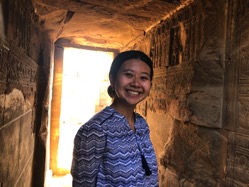Regional revitalisation is a concept originated from Japan in 2012. Since Taiwan is facing similar problems as Japan, the Taiwanese government also decides to adopt this concept to attract people to move to rural areas. Instead of focusing on redevelopment, revitalisation comes to play an important role.
Regional revitalisation is a national strategy in Japan to curb population imbalances and develop rural areas, including reviving rural economic activity. In order to do this, the Japanese government encourages people to move from cities to rural areas. Moreover, Japanese towns and municipalities are bringing forward unique ideas to solve their problems by rediscovering their own specialties and strengths. It also states clearly in the Regional Revitalisation Law that there are three main aspects to work on:
- Providing support for local governments’ projects.
- Establishing a tax incentive for corporations to donate to local revitalisation projects conducted by local governments.
- Building an “active lifetime town” system with a strong focus where middle-aged and elderly people can lead a healthy and active life.
Similarly, Taiwan is facing problems regarding reduction in total population, ageing and low birth rate, overcrowding in large cities and imbalances of urban and rural development. As a result, the Taiwanese government turned its attention to rural development as it declared 2019 as Taiwan’s Regional Revitalisation Year. It also positioned regional revitalisation as its national security policy. In the National Strategic Plan for Regional Revitalisation the Taiwanese government bases its development strategy on three main focuses: “human-centred approach,” “industries with local DNA,” and “introducing technologies”.
Revitalisation vs. redevelopment
Is regional revitalisation different from the former development policy in Taiwan that focused on community development initiatives? According to Taiwan’s former national development council minister Mei-Ling Chen’s words in an interview, the answer is yes.
– Setting private-sector development efforts to one side, regional revitalisation is clearly different because the government is now explicitly focusing on the use of business creation and economic benefits to energise communities, mentions the former minister Mei-Ling.
In other words, the new revitalisation efforts are built on a business model and aim to support the scaling-up of local enterprises. Instead of emphasising business development by fostering local business or creating jobs, the old community development programs only focused on unifying communities, forging consensus, and solidarity.
A successful story of regional revitalisation
Could regional revitalisation really succeed in reviving rural economics? To answer this question, it is worth looking at the story of the entrepreneur Pei-Jun Ho. He began his journey in Zhushan, a small town located in Nantou that was destroyed in 1999 by a 7.3 earthquake, one of the deadliest earthquakes in Taiwan’s history. While other young people moved from the small town to big cities to seek plentiful resources, he and a group of like-minded friends decided to move to Zhushan. In the small city of Zhushan, they renovated an abandoned house and turned it into a boutique bed and breakfast (B&B).
Pei-Jun established the Townway Cultural and Creative Corporation in order to encourage more tourists to visit Zhushan and help them understand the place better. With the aim to promote the value of local culture, he has collaborated with other local businesses to use bamboo to transform the unused second floor of a bus station into a food court. He even created menus full of Zhushan’s local specialties. In return, there are 100,000 visitors, compared to almost none before, who come to see Zhushan every year.
Recognising the growing aging population and rural-to-urban migration among young people, Pei-Jun also encourages young people to stay in Zhushan and to create their own businesses. Whoever has new ideas for Townway Cultural and Creative Corporation can stay in its belonging accommodation in exchange for skills. One after another, young people have started coming to the town and bringing new technology to the local community. He thereby creates possibilities for both local residents and young people to start businesses. In this way, he does not only preserve cultural heritage but also adds value to Zhushan.
Although Pei-Jun started his business in Zhushan before the concept of regional revitalisation was presented, his successful story tells that it is not a dream to revive rural economics. Since regional revitalisation now is listed as one of the national policies, there are even more chances to create stories like Pei-Jun’s.


